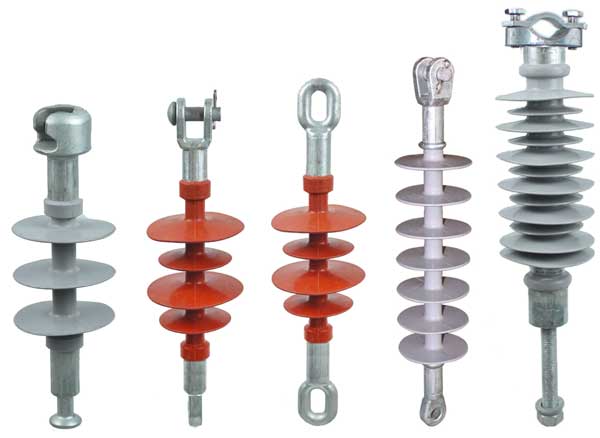GRL Electric
Internal Team
Mobile | 0086-13757783569(whatsapp)
what’s app| +86-13868788750
Email | [email protected]
Address | No.66, Punan 5 Road, Wengyang Town,Yueqing City 325604,
Zhejiang,China

Insulators are typically made from high-quality ceramic, glass, or composite materials. They are used to support and secure conductors while isolating components at different potential levels. As a critical component in power systems, insulators effectively isolate current, preventing leakage and short-circuit risks, thereby ensuring the safe and stable operation of the system.
Insulators play an irreplaceable role in power transmission and distribution systems, especially suitable for applications in high-voltage and ultra-high-voltage lines. Different types of insulators can be tailored for specific applications: ceramic insulators are typically used in high-temperature and high-mechanical-stress environments, while composite insulators, known for their lightweight, pollution resistance, and anti-aging properties, are highly suitable for outdoor use, particularly in areas with extreme weather and heavy pollution.
Our insulator products not only meet international standards (such as IEC and ANSI) but have also received multiple authoritative certifications. They are widely applied in power, railway, and telecommunications industries, making them the preferred choice for numerous electrical engineering projects.
An electrical insulator is a material or device used to prevent the undesired flow of electric current by providing a high resistance path. Insulators support and separate electrical conductors in power systems, ensuring safe operation and preventing short circuits or electric shock.
Porcelain insulators and composite insulators differ mainly in material composition and performance characteristics. Porcelain insulators, made from ceramic materials, are heavier, highly durable, and offer excellent insulating properties, making them suitable for traditional and low-pollution environments. However, they are prone to cracking under impact and require more frequent maintenance in polluted areas. Composite insulators, on the other hand, consist of a fiberglass core covered by silicone rubber, making them lighter, more resistant to pollution, and less susceptible to breakage. Although they may age faster under UV exposure, composite insulators are ideal for harsh, high-pollution environments where their hydrophobic surface reduces maintenance needs and minimizes contamination. Ultimately, porcelain insulators are valued for their long-term stability, while composite insulators provide a flexible, cost-effective solution for challenging conditions.
Electrical insulators are primarily used in transmission and distribution networks, such as substations, high-voltage power lines, and transformers. They also find applications in electrical equipment to isolate and support conductive parts. they isolate energized conductors, preventing unintentional contact with grounded structures. This isolation reduces the risk of electrical faults, protects equipment, and ensures the safety of personnel.
Environmental factors like humidity, salt spray, pollution, and UV exposure can impact insulator performance by causing surface contamination, which may lead to tracking and erosion. Composite insulators are designed to withstand these harsh conditions more effectively than traditional materials.
Composite insulators are highly resistant to mechanical damage, lightweight, and have excellent performance in polluted environments. These characteristics improve overall system reliability by reducing failure rates and maintenance needs.
The lifespan of an insulator varies depending on the material and environmental conditions. Porcelain and glass insulators can last for decades with minimal maintenance, while composite insulators may require more frequent inspection to check for surface damage or aging.
Mobile | 0086-13757783569(whatsapp)
what’s app| +86-13868788750
Email | [email protected]
Address | No.66, Punan 5 Road, Wengyang Town,Yueqing City 325604,
Zhejiang,China